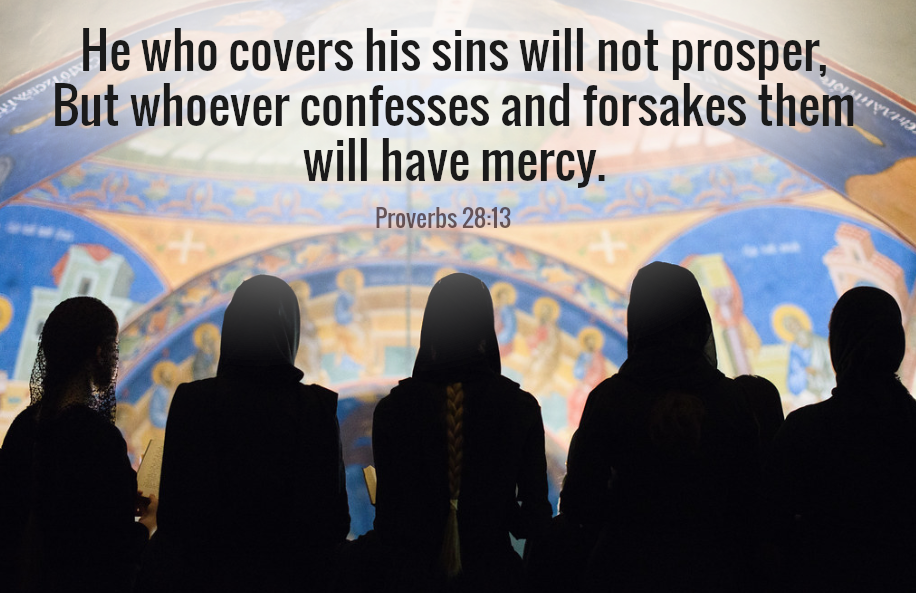
by Fr. Andrei Chizhenko
A sin is confessed, but it continues to bother your conscience. What should you do? Must it be confessed a second time? Fr. Andrei Chizhenko examines the issue.
The holy fathers compare sin with a weed in a garden, and the garden, accordingly, with the heart. They spoke about how the battle with sin continues unto death. Just as a garden needs to be weeded constantly, so we need to fight with our sins, first of all by frequent Confession.
Here, dear brothers and sisters, I would like to say that in priestly practice, you’re often faced with the fact that in the mind of parishioners, the Sacrament of Confession is often inseparable from the Sacrament of Communion. They think they have to prepare for Confession just as strictly as for communing of the Holy Mysteries of Christ; that is, fasting, reading canons, and so on.
Of course, this isn’t true. All this must be done in preparation for the Sacrament of Communion, and the Sacrament of Confession is included in this preparation. But if you want to confess without Communion, then it’s enough to recall the sins that torment your soul, and without any preparation of fasting and praying, just come to church and ask the priest to confess you. It’s desirable to confess often—as much as necessary. After all, we also sin often!
The usual monastic practice, for example, is to confess at least every week, and more often if necessary.
In general, the holy fathers compared the soul of a man who confesses frequently to a flowing spring, where the water is ever fresh and clean; and the soul of a non-confessing man to a musty swamp with stale, stagnant water.
Now about sins. We have seen that the holy fathers compared sin to weeds. Of course, there are sins that a man commits, he burns himself, and never repeats them again. For example, fornication, abortion, attempted suicide, violent fights, and other serious sins. He burns himself, confesses this sin, and through the priest’s prayer of absolution, the Lord removes these sins from him. If he doesn’t repeat them, then he doesn’t need to confess these sins anymore. Let us not lack faith; we must trust in the mercy of God and His forgiveness.
But, for example, if a man hasn’t committed adultery but (he feels) the passion of lust is still strong within him, then, of course, it must be confessed. It means the root of sin has remained in his heart. And as long as it agitates the soul, it must still be confessed. Or, for example, a man hasn’t killed anyone but has regularly condemned and become irritated and angry—after all, these passions are also a violation of the commandment, Thou shalt not kill. Unfortunately, we experience them almost every day.
We must confess not only those sins of deed, but also our words and thoughts, so as to uproot a sin already in the embryonic phase, when it has attached itself to our thoughts or feelings. What is written in the 136th Psalm, known as “By the Waters of Babylon” and often used in the Divine services of the preparatory weeks of Great Lent? Verses 9 and 10:
O daughter of Babylon, who art to be destroyed; happy shall he be, that rewardeth thee as thou hast served us. Happy shall he be, that taketh and dasheth thy little ones against the stones.
These verses from the Psalm are a call for us to Confession. The daughter of Babylon is our passionate, fallen nature, full of vice, desolating the soul; and also demonic attacks against us. The “little ones” of the daughter of Babylon are hostile, diabolical provocations, sown in our hearts by satan, and also our personal feelings and thoughts, which are akin to these provocations and begin to grow in our hearts first as babies, and then as giant beasts. Therefore, the passions must be nipped in the bud. They must be dashed against a stone.
What is this stone? It is Christ. And when we fall before Him in the Sacrament of Confession and break the buds of our sins against this sacred rock by tears of repentance, we receive forgiveness and the healing of our passions from the Lord. We receive blessedness, that is, the highest joy of repose in God.
Let us remember, dear brothers and sisters, that if we feel that a sin continues to hurt us mentally and sensually, then, of course, it’s better to confess it again. Let us also remember that this struggle will continue unto our very deaths. But the reward is great! Eye hath not seen, nor ear heard, neither have entered into the heart of man, the things which God hath prepared for them that love Him (1 Cor. 2:9).



